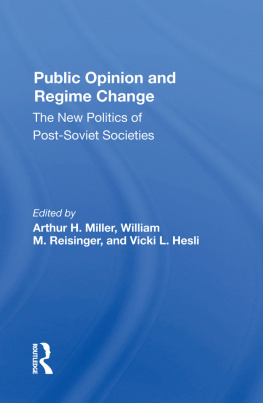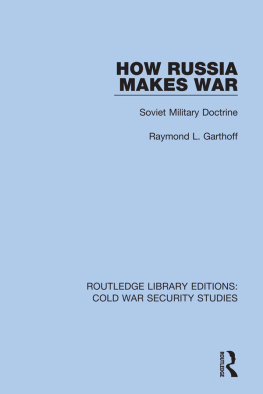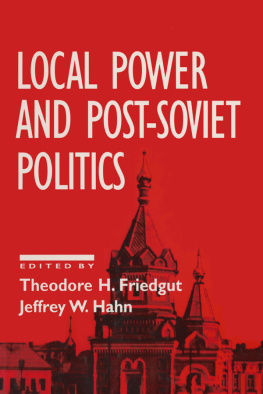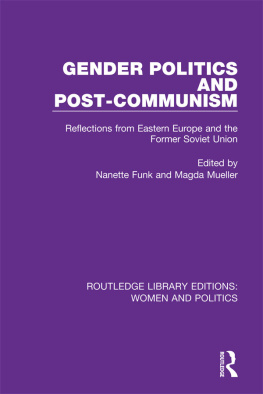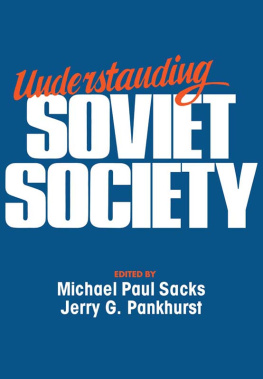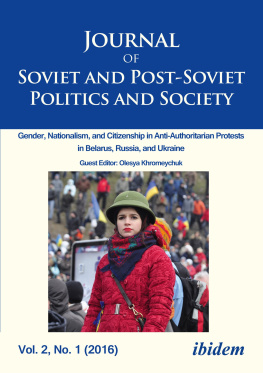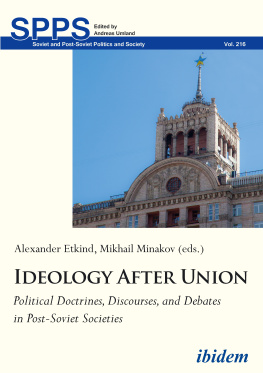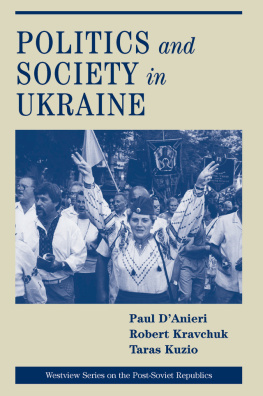Back from Afghanistan: Experiences of Soviet Afghan War Veterans in Transnational Perspective
Felix Ackermann and Michael Galbas
This special issue is aimed at discussing how states and societies have addressed the consequences of the SovietAfghan War (197989), not only during the Soviet period but also in the aftermath of 1991 . [1] The primary intention is to analyze the different strategies used for (re)integrating veterans of an asymmetric war into society in a radically changing international context, which covers a period beginning with the break-up of the USSR and ending with current developments in the successor states, including the ongoing war in Eastern Ukraine . [2] Beyond a normative concept of successful (re)integration, contributors address the many contradictions b e tween the soldiers self-perceptions, their post-war experiences, and the changes faced by the veterans in the new post-war and post-Soviet social settings. [3] Certain specific features of the SovietAfghan conflict, such as its asymmetric nature, and the unwillin g ness of Soviet officials to address the violent character of the Soviet invasion, have had a long-term impact on the veterans of the war. Furthermore, this impact has later resurfaced in different ways in the newly emerging post-Soviet societies. [4] By bringing together new original research on Ukrainian, Russian, and Tajik veterans we set out here to examine and compare the impact of the SovietAfghan War from a transnational perspective, across different post-Soviet contexts.
From the perspective of conscripts from the European parts of the Soviet Union, this was a war that took place in a remote country; yet the war had a substantial impact on the different home societies, both before and after the soldiers returned from Afghanistan. [5] This special issue analyzes this impact with an e m phasis on the ways in which the veterans dealt with the violent experience of the SovietAfghan War and its consequences in di f ferent Soviet and post-Soviet societies. The different contributions take into consideration the social, legal and media strategies a p plied with a view to (re)integrating the (often traumatized) vete r ans in radically changed political contexts after the dissolution of the USSR. [6] In this introduction we give a brief overview of the r e search on the war itself; we draw some parallels with the war in Afghanistan in the early 21 st century; and finally, we formulate some relevant questions for the future study of the impact of war in a transcultural perspective. [7]
The SovietAfghan War and its Consequences
When Soviet troops entered Afghanistan on 25 December 1979, the last large-scale battle of the Cold War started. The declared official goal of the invasion was to uphold Soviet influence and the esta b lishment of public order in a neighboring country troubled by a civil war that had been dragging on for years. [8] The Soviet troops were issued no direct order to fight in Afghanistan. Rather, they were supposed to be overseeing central infrastructure construction projects, training the Afghan army, and providing logistical su p port for its fight against the Mujahidin. Within a single decade, the Soviet Union sent in total over 600,000 military and civil personnel to Afghanistan. Almost immediately after the invasion, it became clear that the Soviet military presence had only provoked a further deepening of the civil war: instead of bringing peace to Afghan i stan, the Soviet Union had become a party to the Afghan conflict in its own right. This had further military consequences. [9] The Mujahidin commanders focused on the deployment of guerrilla ta c tics, which resulted in about 15,000 Soviet casualties across the course of the war. [10] Eventually, having failed to achieve any of its strategic goals, the Soviet leadership finally decided to withdraw its troops and ended the intervention officially on 15 February 1989.
In addition to the human losses caused by the war, the Sov i et decision to violate the Afghan border had a negative impact on the reputation of the Soviet state and its institutions, both within and outside the Soviet Union. Formally the intervention was pr e sented as an act of internationalist brotherly help for a friendly society and an act of self-defense according to the UN Charter. [11] Domestically, the obvious contradiction between the wars official image and its reality served to multiply the doubts of ordinary S o viet citizens regard ing the legitimacy not only of Soviet intentions in Afghanistan but also of Soviet institutions per se. [12] In 1980 the United Nations General Assembly condemned the Soviet interve n tion and appeal[ ed ] to all States to respect the sovereignty, territ o rial integrity () of Afghanistan. [13] Therefore, even while limited to the territory of Afghanistan, this war had global consequences since it put an end to attempts to contain the Cold War. The Uni t ed States declared the Soviet intervention an expansionist move. [14] Even if the US were formally not directly involved in the conflict, they did provide financial support and weapons to the Mujahidin. Both superpowers reinforced their parallel nuclear programs du r ing the conflict. In addition, many (Western) countries protested against the war and consequently boycotted the 1980 Moscow Olympic games . Moreover, from a midterm perspective, it is clear that the economic impact of the SovietAfghan War was one of the factors that weakened the Soviet Union in general, by worsening the situation in the course of the 1980s. Thus, we view this war as an accelerating factor, but not as the cause of the dissolution of the Soviet Empire. [15]
The Soviet intervention and the subsequent withdrawal had various effects on Afghanistan itself and on neighboring societies. [16] After 1989 the Taliban gained more influence in Afghanistan. It was their support for Al Qaeda before the terrorist acts of Septe m ber 11 that gave the formal occasion for an intervention of several NATO member states in Afghanistan. In October 2001 the US jointly with Great Britain launched Operation Enduring Fre e dom, which was profiled as a war against terror. Afterwards, the International Security Assistance Force ( ISAF ) was launched in December 2001 and formally organized as a stabilizing and training mission for the Afghan army and security forces. [17]
The Soviet and the more recent war in Afghanistan share certain features. [18] Generally, the Soviet leadership had decided, much as ISAF would later do, to uphold only a minimum level of security and public order in Afghanistan. Securing strategically important locations and training the Afghan army were among the top priorities shared by the leaders of both interventions. The number of soldiers present in the Hindu Kush across the two i n terventions was also comparable. [19] A further structural similarity might be found in the euphemistic treatment of the war that cha r acterized early public representations of both interventions. The evasive rhetoric used in reporting the more recent war was in some ways reminiscent of the 1980s Soviet discourse on fraternal aid. Thus, for example, in the early 21 st century the employment of Bundeswehr soldiers in Afghanistan was initially presented in the German public sphere as a kind of militarily secured form of deve l opmental aid. [20] A debate over whether this was a full-fledged war was initiated only after the first troops returned and the first so l dier was killed. [21] Subsequently the German federal government changed tack and now for the first time described the war as armed conflict in the sense of humanitarian international law, but not as war. [22] In such attempts to camouflage the real nature of the war we see a parallel to the Soviet representation of the i n tervention in Afghanistan back in the 1980s. In the Soviet case there was an internal official order on precisely how to label the brotherhood and solidarity of the Soviet and Afghan peoples, in order to hide the violent nature of the intervention and to avoid its being perceived by the Soviet society and the international co m munity as an expansionist move. [23]


